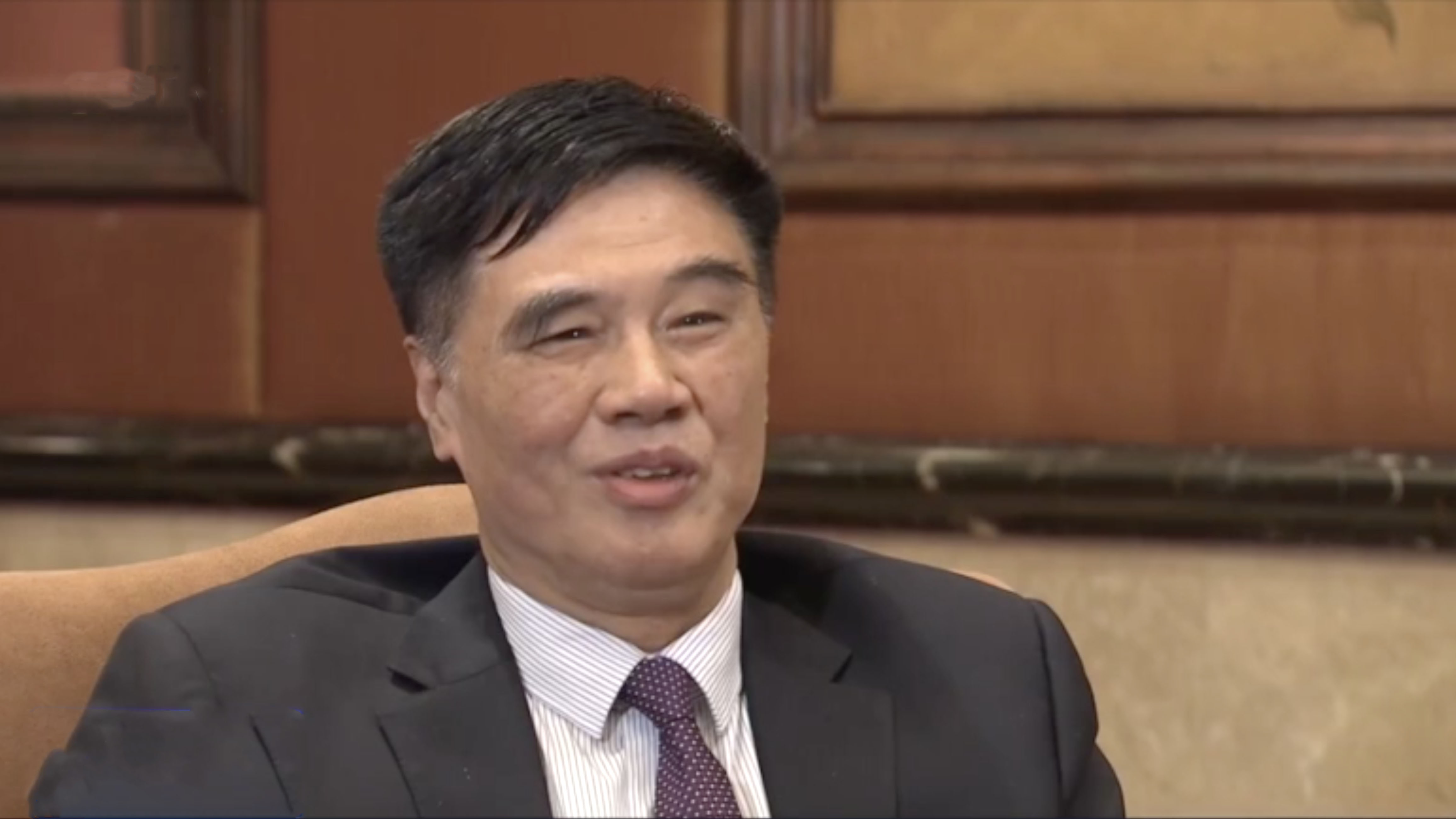03:08

The 13th round of China-U.S. trade negotiation will be held in October. On the sidelines of a recent CEOs' dialogue, CGTN's Wang Hui interviewed Zhang Xiaoqiang, CEO of China Center for International Economic Exchanges. He shared his thoughts on the impact of the ongoing trade dispute, Chinese investments in the U.S. and the future of bilateral ties.
Data from the Chinese Ministry of Commerce showed that China's investments in the U.S. went down by 20 percent in the first half of this year, compared to the same period last year.
When asked if it's wise for Chinese companies to be so cautious about investing in the U.S., Zhang, former deputy director of the National Development and Reform Commission, said many Chinese companies want to invest in the U.S. but hesitate because of the Trump administration's unfriendly policies and the uncertainty of bilateral economic ties.
"Some of the Chinese companies want to make more investments in the American market. But, as I mentioned earlier, the Trump administration thinks that everything is related to national security, which has reduced the Chinese companies' investments in the United States. Additionally, the uncertainty of the China-U.S. economic trade relationships means that even though the U.S. agreed that Chinese companies to invest in the United States, they may change their policies or regulations," he said.
Zhang also responded to the concern that the U.S. trade war is just the start of a cold war targeting China. The U.S. will suppress China in other sectors, such as finance.
"The Chinese side has emphasized so many times that China will persist in its peaceful development role. We do believe that cooperation is much better than confrontation. So, in fact, in the Osaka Summit's meeting between President Xi Jinping and President (Donald) Trump, the two leaders agree to develop a cooperative, coordinated and stable relationship between China and the U.S.," he added.
Zhang believes China wants to develop a healthy bilateral relationship with the U.S. instead of getting involved in a cold war.